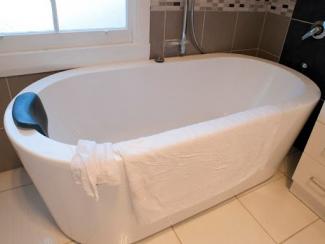
White people have recently been on social media sharing their bathing habits – or LACK of bathing habits. It started with whether or not we should wash our legs in the shower. Now white celebrities have gone even further. The sad part is we didn’t even ask!
it’s even worse since being “dirty” is something they have long accused US of – for sinister reasons.
First of all, our people were the first to realize using water wasn’t enough to keep our bodies clean. The ancient Nubians used aromatic oils and spices to keep themselves smelling fresh. But it wasn’t enough for us to smell good.
We also wanted to prevent infections. Our ancestors in Sudan had various methods to kill bacteria on the skin, created sunblock, and mixed reddish stones with mud to care for their bodies. That’s what makes what white folks tried to do so ridiculous.
They wanted to pretend they were superior to us by talking about “purity,” “cleanliness,” and being “civilized,” all the while labeling us as “dirty.” But Europeans literally didn’t start bathing regularly until the 1800s, according to historians!
White people labeled us as inherently “dirty” as an attempt to control and insult Blackness. We must remember our bodies are resilient and divine. Besides, we invented some of the most innovative ways of caring for our hygiene LONG before white people did.